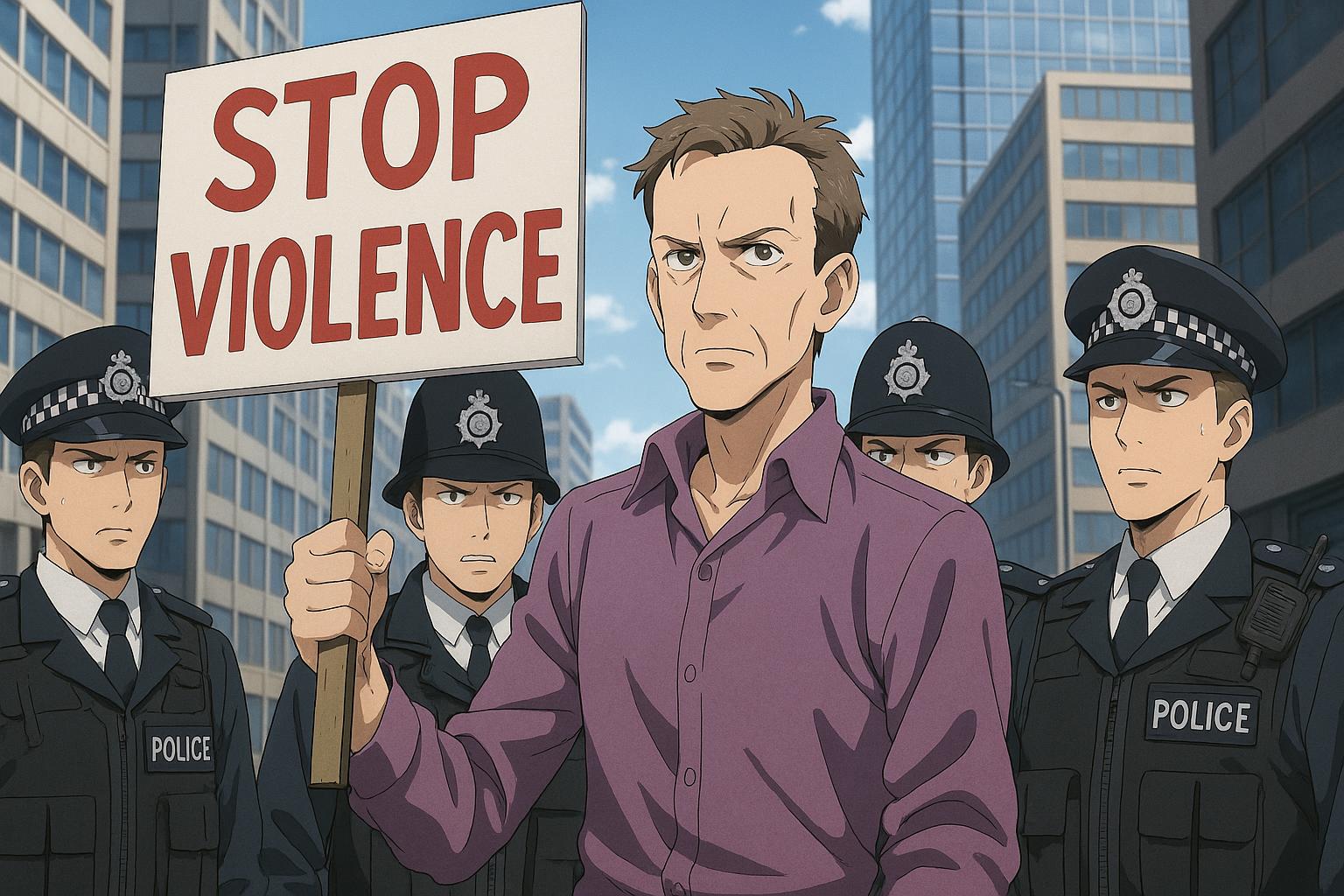Some Metropolitan Police officers appear intent on demonstrating their inability to manage complex situations, relying instead on a heavy-handed approach that undermines the very principles they are sworn to uphold. Recent incidents have highlighted the disconnect between police authority and public accountability, with alarming implications for civil liberties in London. The spectre of past atrocities within the force looms large, from the tragic murder of Sarah Everard by former officer Wayne Couzens to the serial killings of Stephen Port, whose victims were allowed to die while police dismissed overt parallels in the crime scenes.
The arrest of Peter Tatchell at a pro-Palestine rally underscored this troubling trend. Tatchell, a prominent human rights activist known for his unwavering advocacy across various causes, was detained for apparently opposing both Hamas and the Israeli government's actions in Gaza. Holding a placard that read "STOP Israel GENOCIDE! STOP Hamas executions!" along with the photo of Odai Al-Rubai, a young man executed by Hamas for protesting against the regime, Tatchell embodies a nuanced critique often overlooked in heated debates. His opposition to violence on all fronts reflects a layered understanding of the conflict that many onlookers fail to grasp, illustrating the critical distinction between condemning one form of violence while opposing another.
Tatchell's arrest has aroused significant public outrage, particularly in light of his long history of activism. Indeed, he has faced a similar ordeal in Qatar, where he was detained during a solo protest outside the National Museum. That incident served to highlight Qatar’s treatment of LGBTQ+ individuals in the lead-up to the FIFA World Cup, showcasing Tatchell’s readiness to confront power regardless of the setting. During that protest, he held a sign condemning Qatar’s human rights record, demonstrating once again his commitment to human rights across the globe.
The Metropolitan Police's justification for detaining Tatchell—asserting that he had shouted "Hamas are terrorists"—has been met with skepticism, as Tatchell himself denies making such a statement. His arrest unfolded amidst hostility from sections of the crowd, who resorted to insults and threats against him, showcasing the polarisation of discourse surrounding the Israel-Palestine conflict. This incident exemplifies a broader challenge: the difficulty of navigating complex moral landscapes without resorting to simplistically binary views.
As public trust in law enforcement continues to erode, the Met faces heightened scrutiny not only from the public but also from civil rights organisations that are increasingly vocal about police conduct. The response from the community and activists following Tatchell’s arrest underscores a growing discontent with police actions perceived as arbitrary and lacking sensitivity to the nuances of individual expression and political dissent.
In an era where civic engagement is paramount, particularly concerning contentious global issues, it is critical that law enforcement recognises and respects the rights of individuals to express dissent against all forms of oppression, whether governmental or authoritarian. The imperative to protect civil liberties must not become a casualty of operational inadequacies or prejudgement.
It remains imperative for the Metropolitan Police Force to reassess its approaches and invest in training that fosters a deeper understanding of complex socio-political dynamics. There is an urgent need for them to demonstrate that they are not merely enforcers of a status quo but are also guardians of the public’s rights to protest and dissent, essential pillars of any democratic society.
Reference Map
- Content on Peter Tatchell's recent arrest and historical context.
- Background on Peter Tatchell's prior protest in Qatar.
- Context regarding the demonstrations and the reactions from both police and the public.
Source: Noah Wire Services
